
Rebecca Christie
Rebecca Christie is a Senior fellow at Bruegel and hosts Bruegel's podcast, The Sound of Economics. She is also the Brussels columnist for Reuters Breakingviews. She writes about the crossroads of markets, policy and politics, particularly where it comes to the European Union and how it interacts with the world. She was lead author on the European Stability Mechanism’s official history book, "Safeguarding the Euro in Times of Crisis: the Inside Story of the ESM".
Over more than two decades in journalism, Rebecca has reported from Brussels, Washington and around the world for Bloomberg News, Dow Jones Newswires/The Wall Street Journal and the Financial Times. She joined Bruegel as a visiting fellow in 2019.
She has also served as an expert adviser to a European Economic and Social Committee panel on taxation, is a regular conference speaker and moderator, and has provided editing and policy analysis to the European Commission, members of the European Parliament, and the African Development Bank. A US-Belgian dual citizen, she holds degrees from Duke University and from the LBJ School of Public Affairs at the University of Texas at Austin.
Disclaimer of external interests
Declaration of interests 2020 - 2021
Featured work

The macroeconomics of decarbonisation
At this event we will launch the book "The Macroeconomics of Decarbonisation: Implications and Policies"

Inclusive digital economy: a round-up of project research
The rise of automation, remote employment and a diversifying workforce will necessitate a shift in how we interact with new technology
A Connected Europe in the Digital World
The EU's digital policy will serve the bloc better if it stays open and consciously linked to the rest of the world.
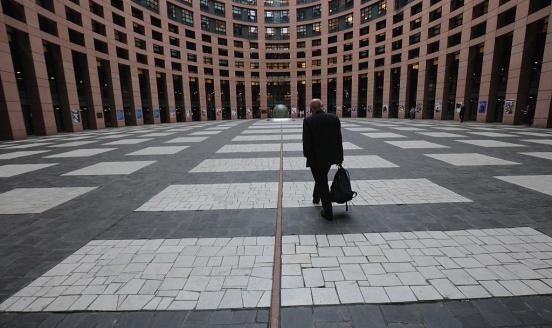
Visible Democracy
The EU’s consensus-driven stumble toward choosing institutional leaders is more democratic than the alternatives.

What will the EU face in 2024?

Government bonds in the ECB collateral framework: What role for credit ratings in the new normal?
How does the ECB's reliance on external credit assessments affect bond yields, government vulnerability, and potential sovereign debt crises?
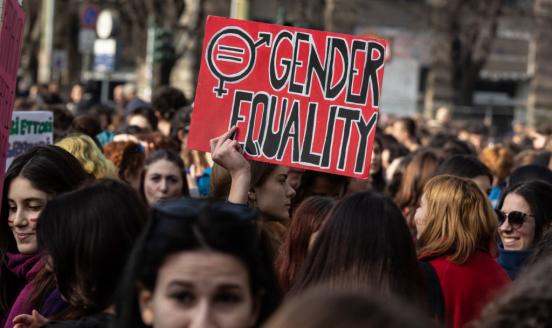
Productivity parity is the road to gender equality
Women can reach a higher potential in the workforce if men begin to play their part.
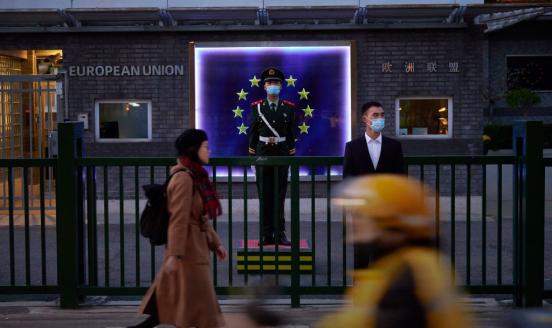
Rivals, Not Enemies
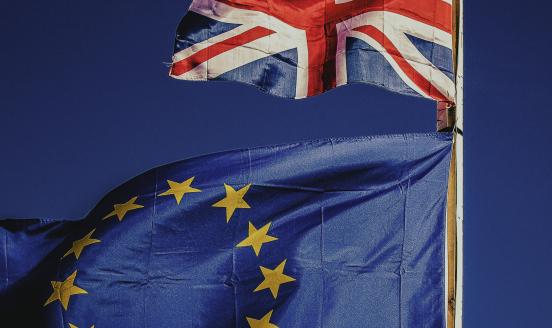
The UK must learn that concessions cut both ways
Brexit may have come and gone, but the UK still wants to make decisions like it is part of the gang.

Better Backstops, Safer Banks
The EU’s banking union needs to keep growing for Europe’s economy to thrive.
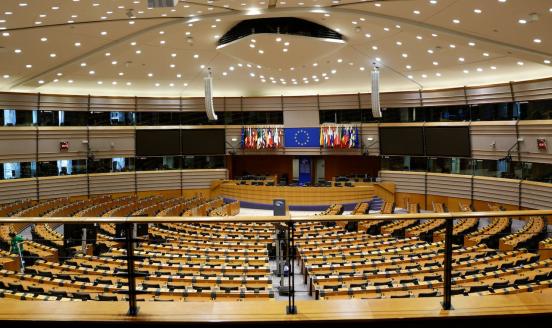
Testimony to the European Parliament Budget Committee on EU borrowing costs
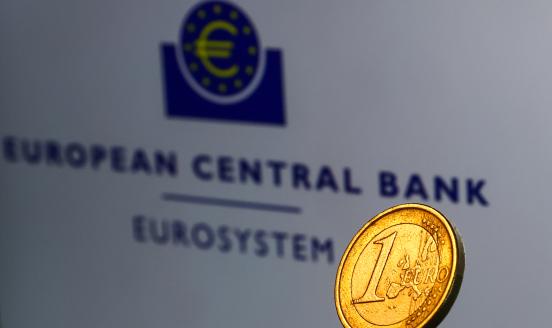
Holdings limit will prove central to the digital euro’s future
The European Central Bank says its digital currency will not be a store of value, in contrast to global counterparts.

Open banking's financial revolution: are we falling short?
At this event we discussed the potential issues and benefits of open banking
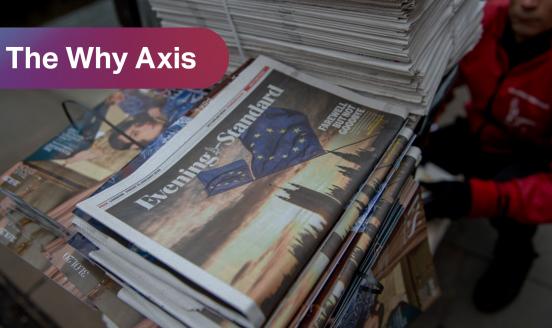
Why should the EU take up the question of minimum income in its fight against poverty?
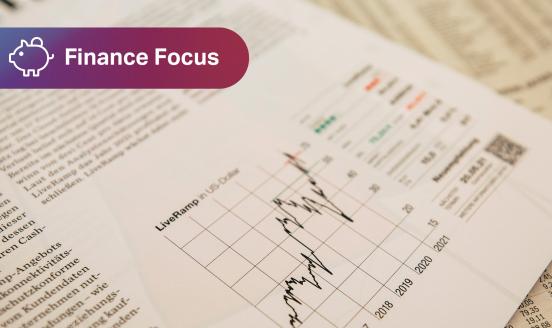
Will investors ever view EU bonds as sovereign bonds?
At this invitation only event we welcome Siegfried Ruhl to discuss EU bonds.

EU’s fight against (in-work) poverty: case for minimum living income
This event brought together perspectives from different states to share best practices on the EU's legislative role in social policies.

Taking up space
Being a woman in the financial sector can still be challenging, but change is (slowly) coming.

What's the story? Narratives of EU reforms in parliaments and the media
This event was organised in the frame of the EU3D project and featured two sessions analysing discourse about the EU.
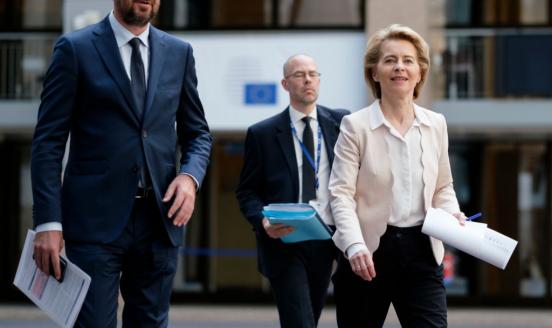
The unbecoming rivalry at the heart of the EU
A battle of egos between Ursula von der Leyen and Charles Michel is putting the EU’s post-pandemic solidarity at risk.
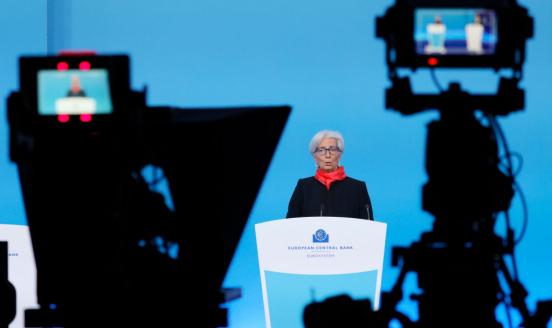
Digital Euro blurs the lines between money and politics
A central bank-backed digital currency would put the EU in the global vanguard when it comes to taking cash payments online.
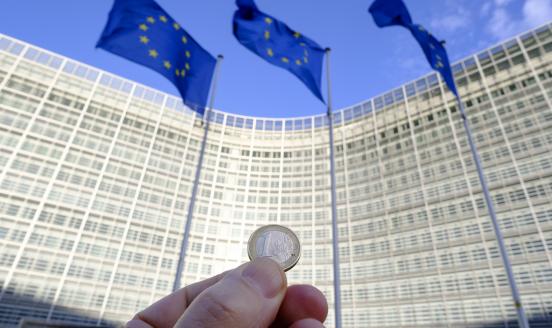
If it doesn’t trade, is it really marketable debt?
Europe’s bond markets are essential infrastructure, just like the power grid.
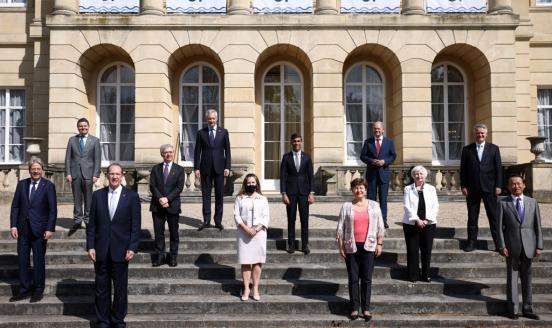
Conditionality in the global financial architecture

Should the European Union turn to financial markets to finance its programs?
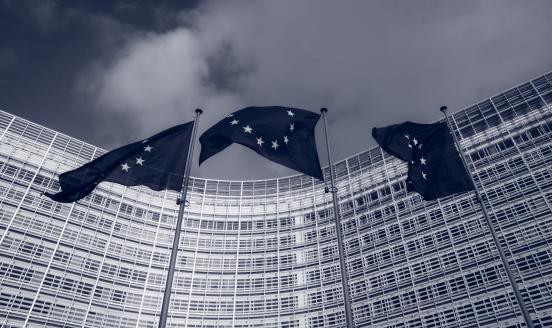
The Energy President
Since taking office, von der Leyen has frequently brought the continent together in the face of unprecedented challenges.

Bruegel Annual Meetings, 6-7 September 2022
The Annual Meetings are Bruegel's flagship event which gathers high-level speakers to discuss the economic topics that affect Europe and the world.

If Robots Are Coming for Your Job, Should They Also Pay Your Taxes?
In a changing global framework, is it time for a robot tax and how would it need to be structured and effectively implemented?
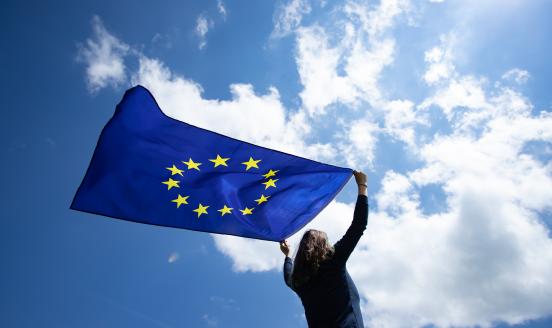
The European Renewal: Making the most of pandemic recovery
COVID-19 remains dangerous, but if Europe can continue its unprecedented fiscal co-operation the crisis could give way to a new era of prosperity.

Closing the gender gap for self-employed women in the European Union
Self-employed women are at a wealth disadvantage, according to ECB household finance data, and thus have more to gain from policies that spur saving.

Better pensions for the European Union’s self-employed
What is the current state of pensions policy in Europe and how are independent workers treated compared with their traditionally employed counterparts

Nonperforming Loans in Asia and Europe—Causes, Impacts, and Resolution Strategies
What can we learn from the experiences of Asia and Europe with regard to NPLs during the financial crisis to help us weather future ones?
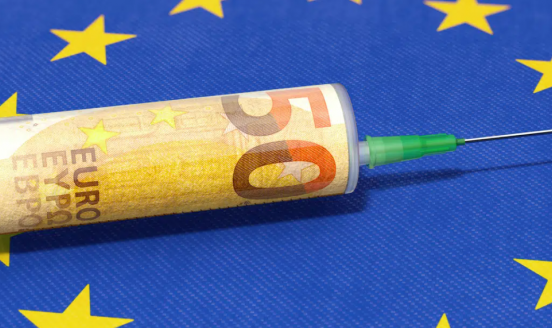
EU borrowing—time to think of the generation after next
Financing post-pandemic recovery via EU borrowing has proved remarkably straightforward. So why keep it temporary?

Next Generation EU borrowing: a first assessment
What is new about NGEU is not just the increase in the EU’s borrowing power, but also the nature of the expenditure.

Don't let up - The EU needs to maintain high standards for its banking sector as the European economy emerges from the COVID-19 pandemic
In-depth analysis prepared for the European Parliament's Committee on Economic and Monetary Affairs (ECON).

Do robots dream of paying taxes?
The digital transition should be managed – and taxed – alongside other societal transitions, but any tax on companies that replace employees with aut
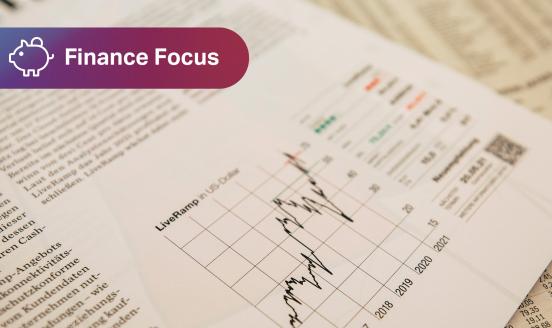
Setting up the EU as a new benchmark borrower
At this closed-door event Siegfried Ruhl, Counselor to the Director-General for Budget at the European Commission discussed the EU's borrowing program

EU climate plan should involve taxing pollution, not borders
Climate change and taxes may be some of the only true certainties in life. To protect ourselves better, we should make careful choices on how they int

Small investors punch above their weight when it comes to improving corporate governance
Far from being irresponsible know-nothings, retail investors provide a vital counterpoint to institutional investors.

SPACs in the gap
Special-purpose acquisition vehicles could fill a gap in European equity markets and lure risk-averse investors off the sidelines.

Inflation, inequality and immigration: Spelling the digital recovery with three “I”s
The digital transition offers us a new opportunity to reach out across the global economy - hopefully we will find the strength to use it.
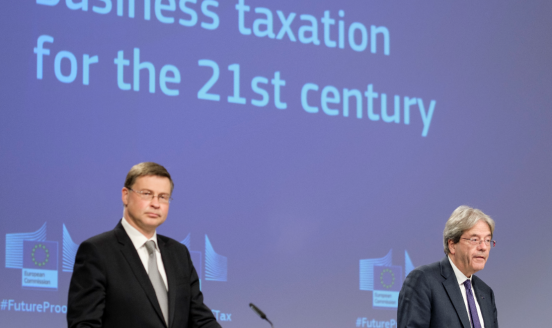
International tax debate moves from digital focus to global minimum
International corporate tax reform is coming closer if countries can set aside their differences and work for progress rather than the perfect deal.

Central banks don’t have to pick winners and losers to fight climate change
Disclosures and financial regulation don’t get enough respect as tools to reduce emissions.

US separates climate concerns from financial oversight in contrast to EU activism
Different EU and US supervisory approaches to climate risk may hamper efforts to work together and risk fragmenting global markets.

Thinking big: debt management considerations for the EU’s pandemic borrowing plan
If not handled correctly, the European Union’s transition to take on a new role as an issuer of public debt risks crowding out existing markets. Manag

How to minimise the impact of the coronavirus on the economy
COVID-19 is a global killer. Austerity needs to succumb.

The EU’s Opportunity to Turn Its Markets Toward the Future
Meeting the fiscal demands of COVID-19 will require the European Union to borrow on capital markets more than ever, and for European pension funds and
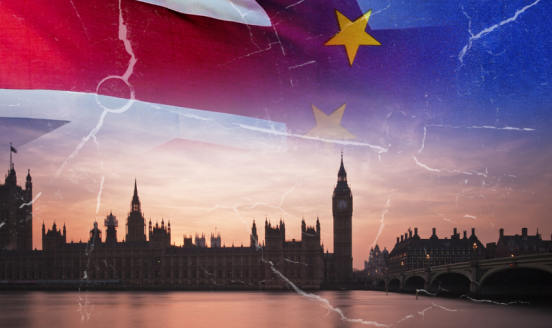
How will COVID-19 impact Brexit? The collision of two giant policy imperatives
The United Kingdom left the European Union on Jan. 31, 2020. Now, the U.K. must decide whether and how to extend the transition period, currently set

The European Union’s post-Brexit reckoning with financial markets
In the negotiations between the European Union and the United Kingdom over their future relationship, we see a high probability of a weak contractual
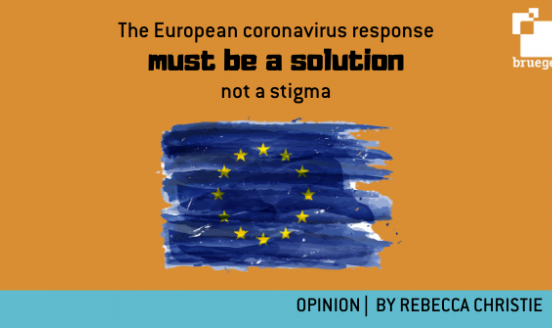
The European coronavirus response must be a solution, not more stigma
Lagarde needs a different bazooka in responding to a natural disaster like COVID-19.
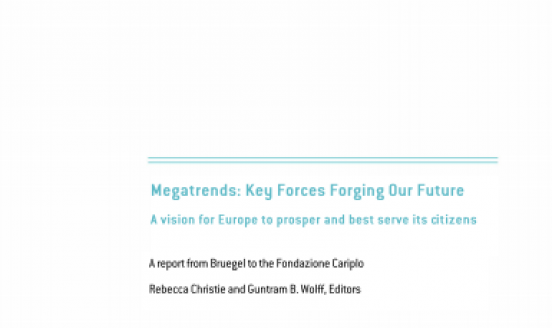
Megatrends: Key Forces Forging Our Future
A vision for Europe to prosper and best serve its citizens
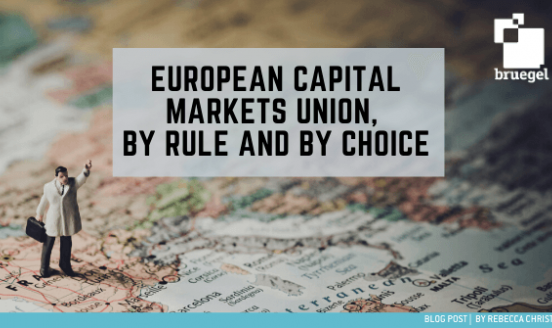
European capital markets union, by rule and by choice
While the euro is now a leading global currency and the European Central Bank has become a comprehensive banking supervisor, Europe’s markets have bee

Scholz's improved plan to complete the banking union
The head of German Finance has written in the Financial Times defending the need to deepen the banking union, now London is about to leave
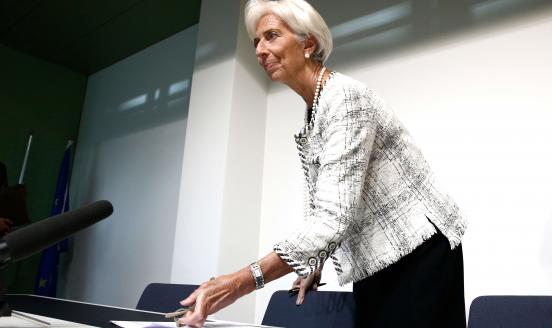
Politics, not policy will help Lagarde save the eurozone
Her success at helm of Europe’s central bank will depend on her ability to mend fences with hawkish policymakers.
Bank resolution: consistency and predictability
Closed-door workshop on various aspects of bank resolution.
Banking disrupted by FinTech and Big Tech
Today banks are facing competition from non-bank firms whose core strategy is based on technological innovation - Big Tech and Fin Tech. What is in st

Addressing the EU’s Global Challenges Locally: the EU’s Competition and Antitrust Tightrope
This blog is part of a series following the 2019 Bruegel annual meetings, which brought together nearly 1,000 participants for two days of policy deba
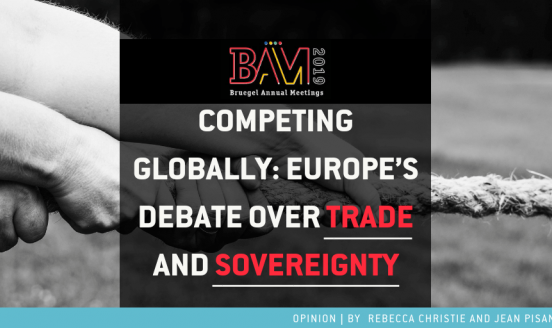
Competing Globally: Europe’s Debate Over Trade and Sovereignty
This blog is part of a series following the 2019 Bruegel annual meetings, which brought together nearly 1,000 participants for two days of policy deba

Brexit banking exodus creates a dilemma for Dublin
Irish consumers’ interests may not coincide with the needs of banks relocating here.

Where Brexit goes, the law shall follow
How the financial industry and the law firms that support it are preparing for what comes next
Tech-enabled payment processes: policy implications of new developments
What challenges does a shift towards new payment processes imply for EU financial services policy?
Sound at last? Assessing a decade of financial regulation
What has changed since the financial crisis of 2008 that makes the financial system sound at last? Is regulatory reform going in the right direction?
Principles of sustainable finance
How can finance help save the planet?
The emerging new geography of financial centers in Europe
What shape is the new financial continent of Europe?